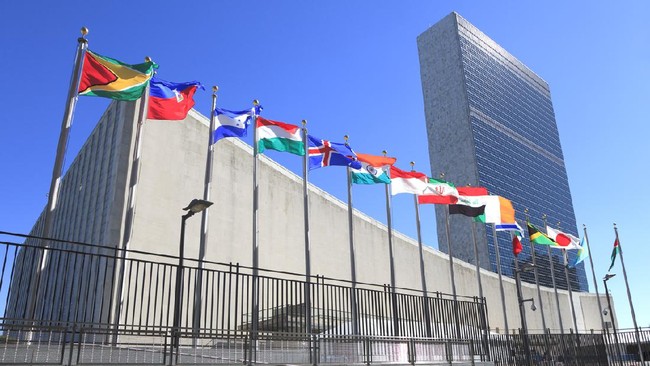New York – The United Nations (UN) is preparing to lay off approximately 6,900 staff members as it navigates a serious financial crunch, triggered by a combination of unpaid dues from member states—most notably the United States—and a broader push for budget efficiency.
In a memo circulated internally, the UN Secretariat stated the organization is targeting a 20% reduction in operating expenditures, equating to a US$3.7 billion (around Rp60 trillion) cut from its current budget. Staff will be formally notified of the job reductions on June 13, pending further review.
The decision comes at a time when the U.S., traditionally the UN’s largest financial contributor, has fallen behind on its payments—reportedly owing US$1.5 billion in the current fiscal year. The situation is compounded by reduced foreign aid allocations initiated during the Trump administration, whose legacy continues to influence Washington’s multilateral funding stance.
While UN Controller Chandramouli Ramanathan refrained from directly linking the layoffs to U.S. arrears, he emphasized that the changes are part of a financial strategy codenamed UN80, introduced in March to modernize the organization’s budget and operational structures.
“This is an ambitious undertaking to ensure the United Nations remains fit for purpose—to uphold multilateralism in the 21st century, alleviate human suffering, and build a better future for all,” Ramanathan stated in the internal communication.
Analysts warn that the scale of the proposed layoffs will have broad repercussions, potentially affecting field missions, humanitarian operations, and development programs in vulnerable regions across Africa, the Middle East, and Southeast Asia.
In recent years, the UN has come under pressure to reform its structure and funding mechanisms, with critics pointing to inefficiencies and growing dependency on a narrow donor base. The UN80 initiative is being viewed as an attempt to shift toward leaner operations while retaining strategic global presence.
The outcome of this restructuring could redefine the scope and reach of the UN’s future activities—especially as global crises, from climate to conflict, demand robust multilateral cooperation.









